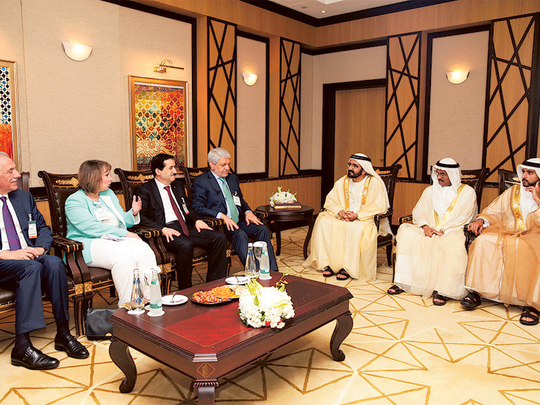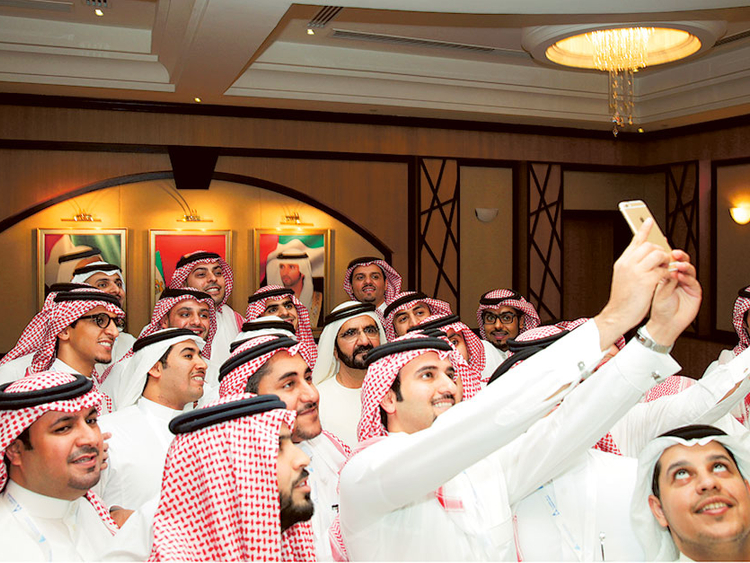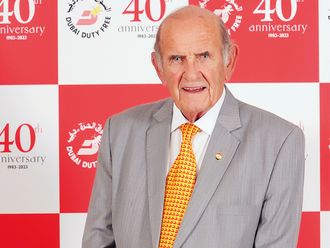
Dubai: Further questions have been raised over whether a regional rail network connecting all six Gulf Cooperation Council (GCC) countries by 2018 will be completed on time.
A representative of the GCC, which include the UAE, said in Dubai on Tuesday that the borders of the six states will be connected “by 2018” but also admitted that individual national rail networks “might be delayed a bit.”
He did not state which countries could see delays or by what length of time.
Two weeks ago, UAE Minister of Public Works, Abdullah Bel Haif Al Nuaimi, who opened Middle East Rail on Tuesday, said that the GCC network might not be completed until 2020.
The six Gulf Cooperation Council (GCC) states, also made up of Saudi Arabia, Kuwait, Bahrain, Qatar and Oman, are building national rail networks that will connect with each other along their borders. The GCC states previously agreed to connect their national rail networks with each other by 2018.
Rihan M. Fayez, head of the economic affairs sector at The Cooperation Council for the Arab States of the Gulf, or GCC, told Gulf News at Middle East Rail that the railway infrastructure along each border will be completed on time but also that some national networks might be delayed.
If individual national railway networks are not completed by 2018, it raises the question as to how the GCC can be connected if, for example, a train is unable to travel from the capital city of one country to another.
On Tuesday, Al Nuaimi reverted question on the GCC network to Fayez, however, said any delays in other national rail networks would not impact the UAE’s plan to connect the seven emirates by rail.
Etihad Rail, owned 70 per cent by Abu Dhabi and 30 per cent by the federal government, is building the 1,200 kilometre UAE network at an estimated cost of Dh40 billion. Phase one, connecting Shah and Habshan to Ruwais, is complete and used to transport sulphur to the coast, which is then exported.
Phase two, connecting Abu Dhabi with Dubai, has been approved with an initial allotment of Dh700 million, Al Nuaimi reportedly said two weeks ago. On Tuesday, Al Nuaimi declined to confirm the figure but said, “We have allocated enough budget,” when asked about the funding.
Passenger services
Questions have also been raised on when passenger services in the UAE, and GCC, will begin. The rail network is being built for both cargo and passenger use. Al Nuaimi said that the focus, for now, will remain on transporting freight across the country. Al Nuaimi referred any questions on when construction phase two will begin, as well as the amount of funding required to complete the phase, to Etihad Rail Chief Faris Saif Al Mazrouei, who he said was also at the event. An employee of Etihad Rail confirmed to Gulf News that Al Mazrouei was at the conference but would not be speaking to the media.
Yemen Coup
Plans to connect the GCC rail with Yemen through Saudi Arabia and Oman have been put on hold following a coup in the country last month. A Shiite militia known as the Al Houthis and widely believed to be backed by Iran took control of the government and capital, Sana’a, in February.
Fayez said connecting Oman and Saudi Arabia to Yemen had been “postponed … because of the coup.”
The six GCC states previously condemned the coup.













